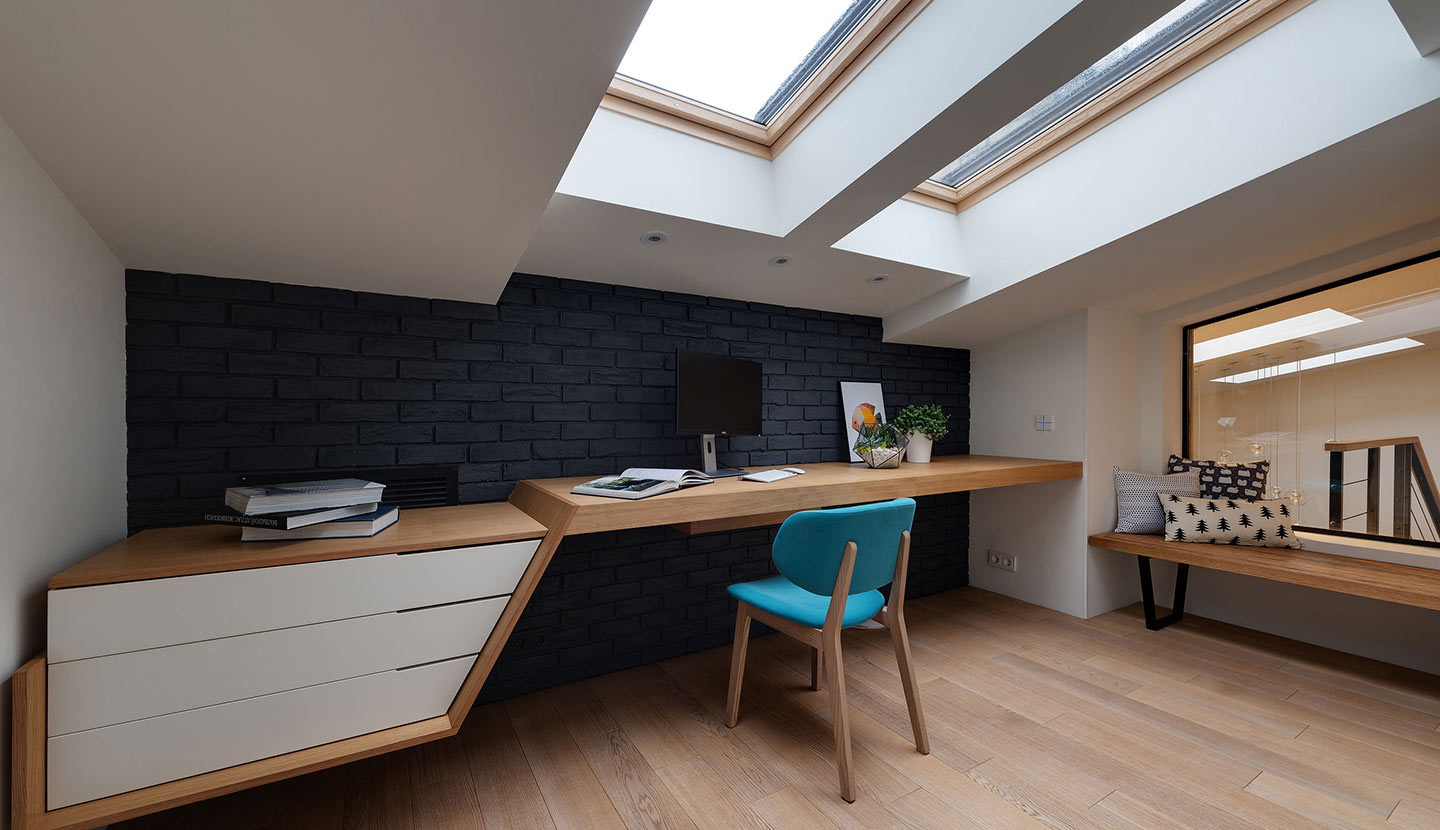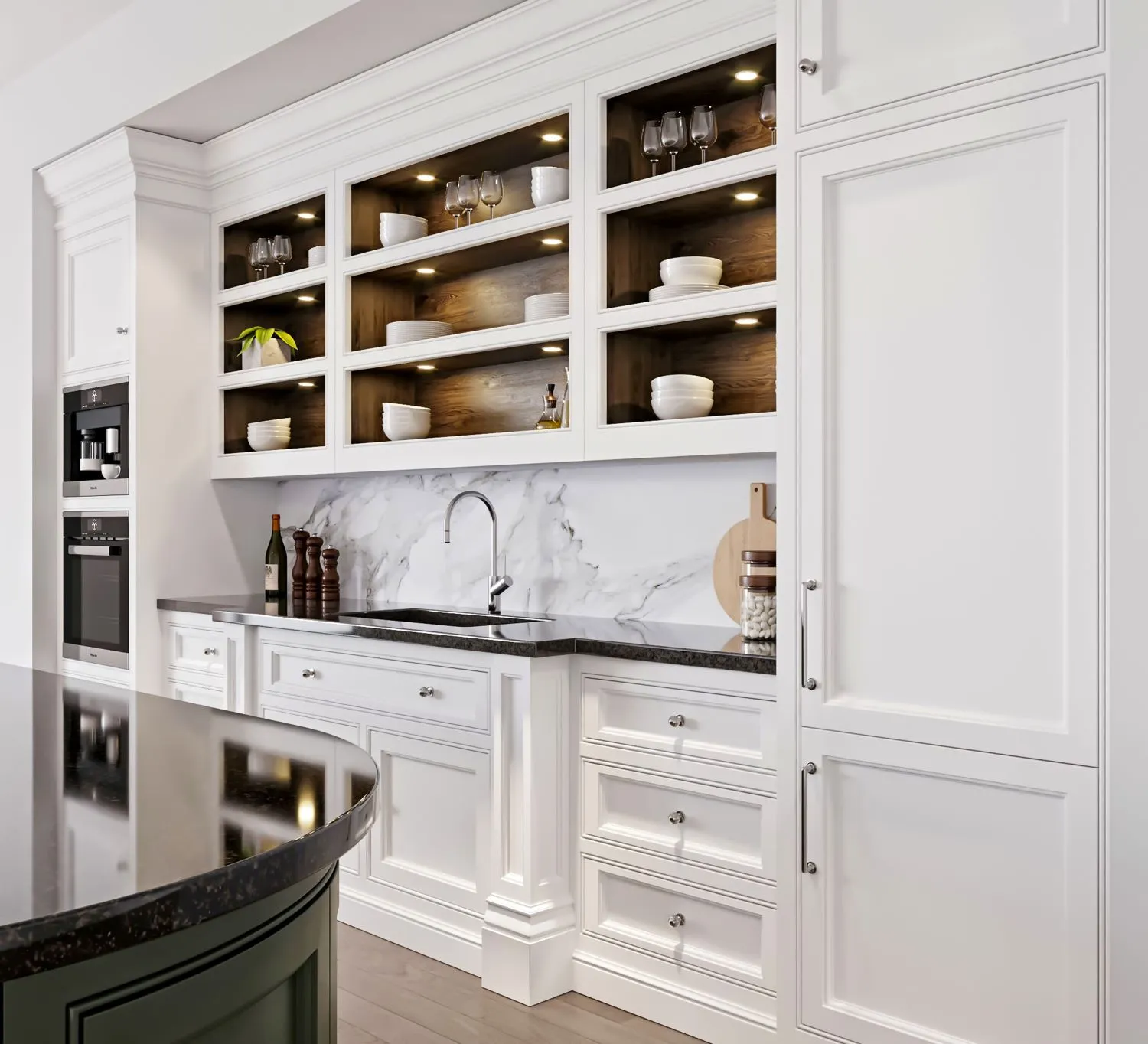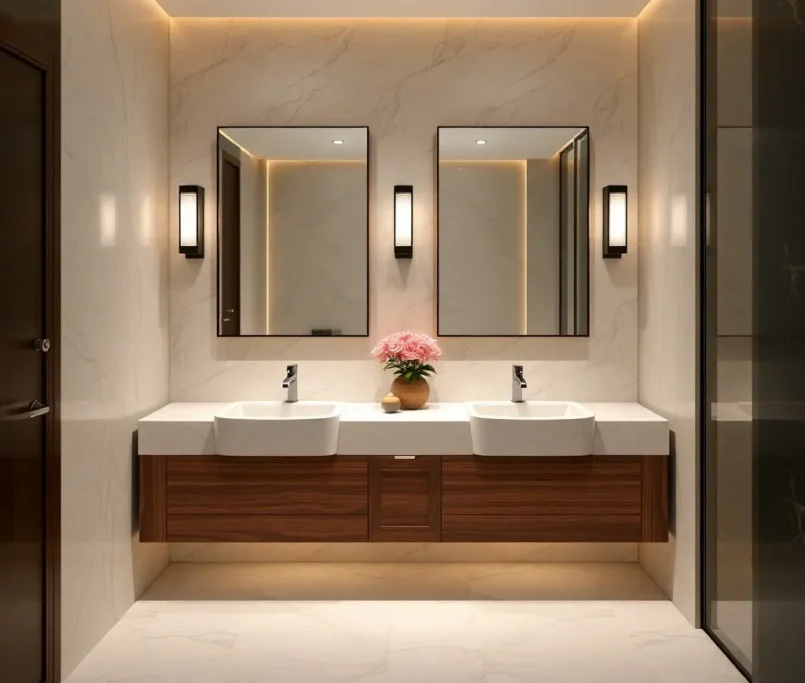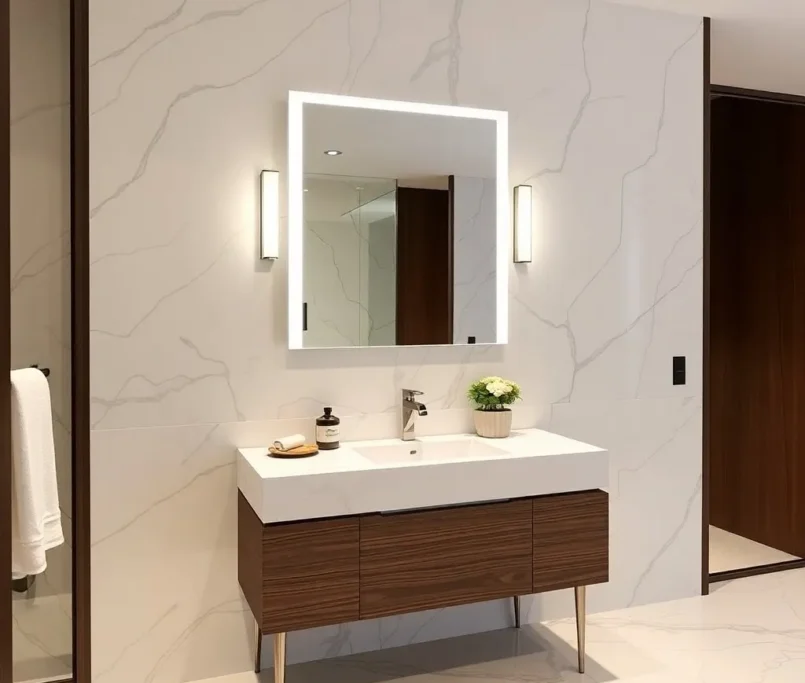Are you or your family member recovering from mobility issues? A walk-in bathroom can be a game-changer for increasing safety and ease of access. However, choosing between a walk-in shower or a walk-in toilet poses a new challenge. While a walk-in tub offers safety features and convenience, it may not be as comfortable as a traditional bathtub. Meanwhile, a walk-in shower can provide a full-body cleanse, but you may not get the complete relaxation of soaking in hot water. In this article, we’ll explore the differences between walk-in showers and walk-in tubs, helping you make an informed decision on which one is best for you. So let’s plunge in!
=> Related Service: Bathroom Remodel Services In California | Guilin Cabinets
Walk-in Tub
While walk-in tubs are a popular choice for individuals with mobility issues, they are also gaining popularity among those looking for a luxurious bathing experience. Walk-in tubs are designed with a watertight door that opens and closes, allowing for easy access without having to step over a high threshold. They typically come equipped with built-in seating, safety grab bars, non-slip flooring, and handheld showerheads for added convenience and comfort.
=> Related Article: Pros and Cons of Walk-In Tubs
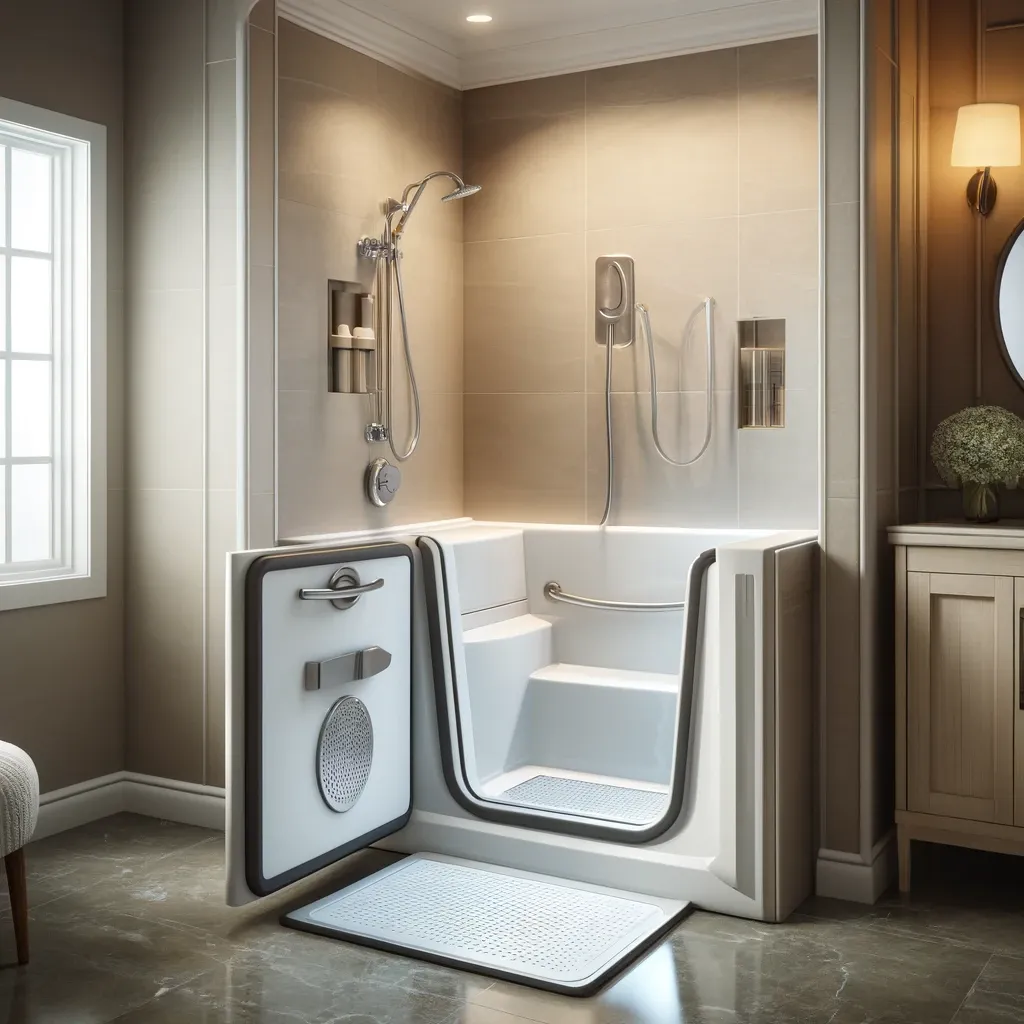
Pros of Walk-in Tubs
For instance, walk-in tubs offer numerous benefits, making them an attractive option for individuals with limited mobility or those seeking a spa-like experience at home. The main advantages of walk-in tubs include improved safety with the low entry threshold and built-in grab bars, enhanced comfort with the integrated seating and various hydrotherapy options, increased independence for individuals who may struggle with traditional tubs, and potential health benefits such as pain relief and better circulation.
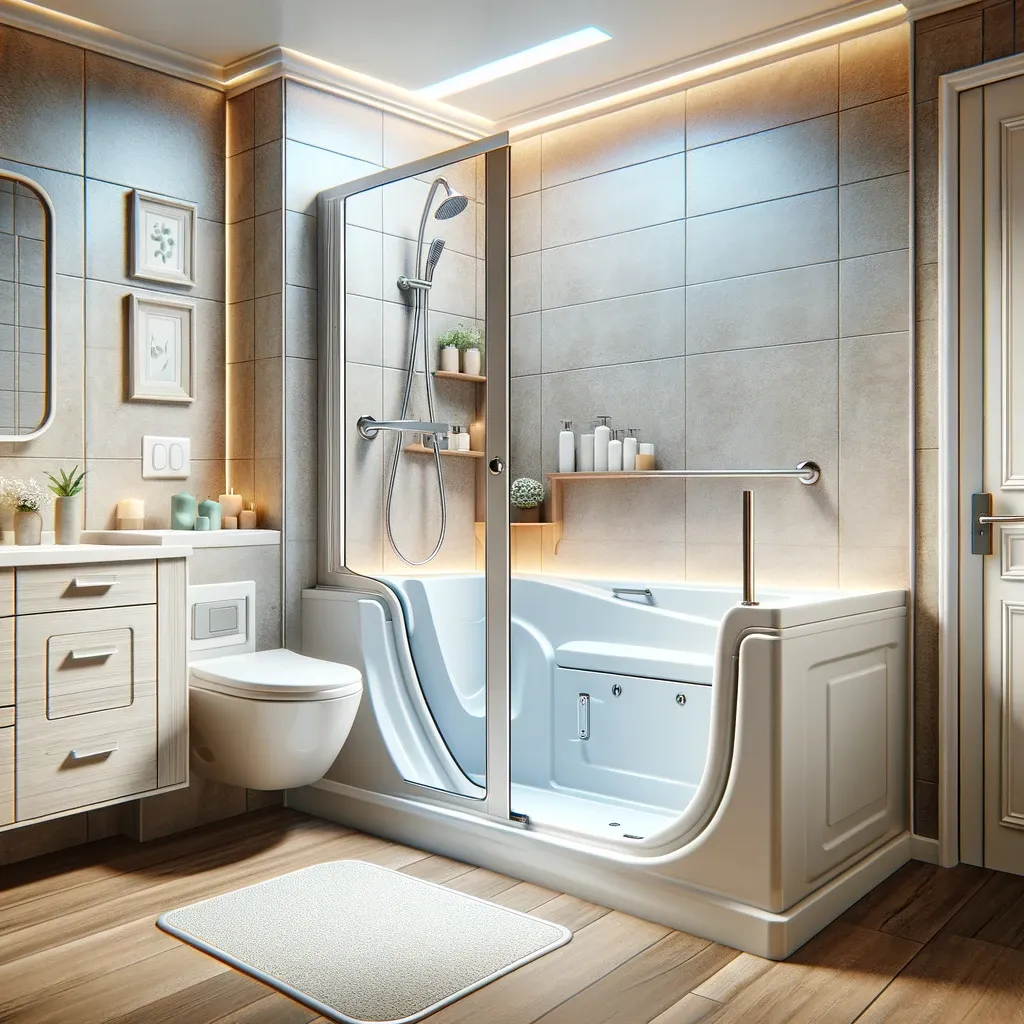
Cons of Walk-in Tubs
With the many advantages of walk-in tubs, there are also some drawbacks to consider before making a purchase. The main disadvantages of walk-in tubs include the high initial cost of purchase and installation, the longer time required to fill and drain the tub due to its design, the limited space for movement inside the tub, the possibility of water leakage if the door seal is not maintained properly, and the need for regular cleaning and maintenance to ensure optimal performance and longevity.
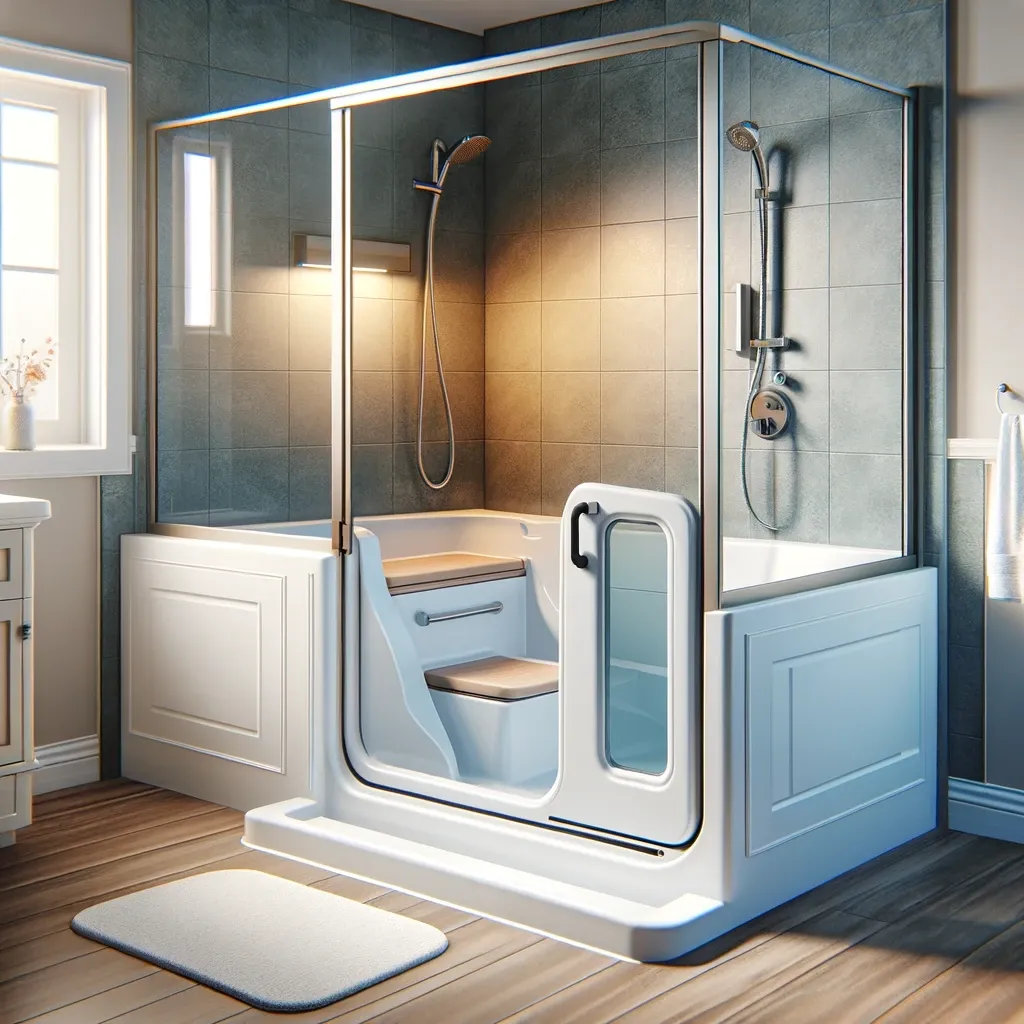
Walk-in Shower
In terms of aesthetics, walk-in showers are famously understated. A frameless glass enclosure is a common feature, which makes the bathroom appear larger. Cleaning is a snap because there is no heavy door or curtain to get in the way. One of the most distinguishing features of walk-in showers is their low or zero-threshold entry, which makes them considerably more accessible and safer by doing away with the necessity to climb over a threshold.
=> Related Article: The Benefits of Walk-in Shower For Bathing Experience
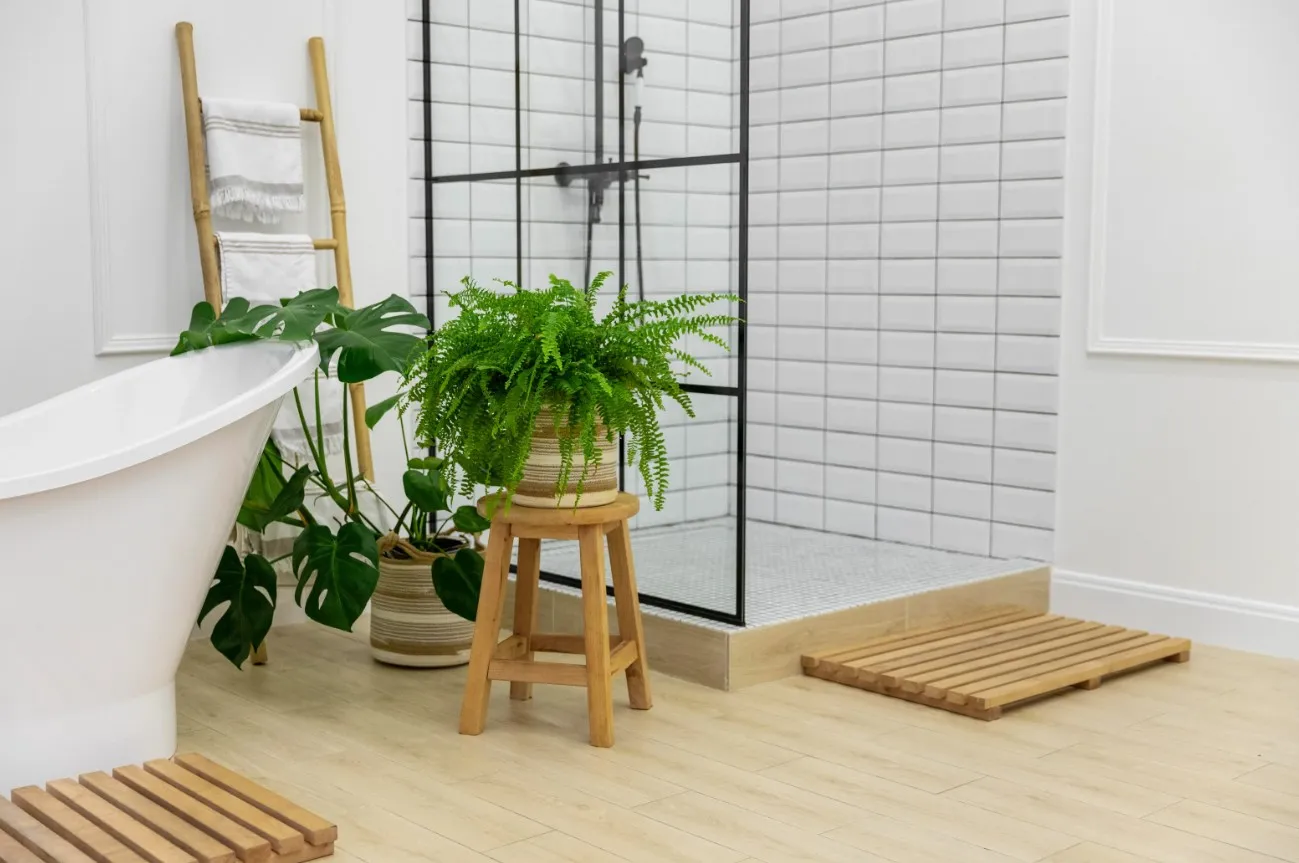
Advantages of Walk-in Showers
An important advantage of walk-in showers is their accessibility. The low or zero-threshold entry makes it easy for individuals with mobility issues to enter and exit the shower safely. This feature is especially beneficial for elderly individuals or those with disabilities who may have difficulty stepping over a traditional tub wall. Additionally, walk-in showers are easy to clean and maintain, thanks to their minimalist design and lack of enclosed spaces where mold and mildew can thrive.

The versatility of walk-in showers is another key advantage. They can be customized to fit virtually any space and can be tailored to suit your specific needs and preferences. Whether you prefer a spacious shower area for a relaxing experience or a compact design to save space, walk-in showers offer flexibility in design and functionality. With a variety of materials, colors, and styles available, you can create a personalized shower that complements your bathroom decor.
Disadvantages of Walk-in Showers
The most significant disadvantage of walk-in showers is the potential for water leakage. Without a door or curtain to contain the water, there is a risk of water splashing outside the shower area and causing damage to the bathroom floor. Proper installation and regular maintenance are necessary to prevent water leakage and ensure the longevity of your walk-in shower. Additionally, the lack of a tub in a walk-in shower may be a drawback for those who enjoy taking baths or have young children who require a bathtub.
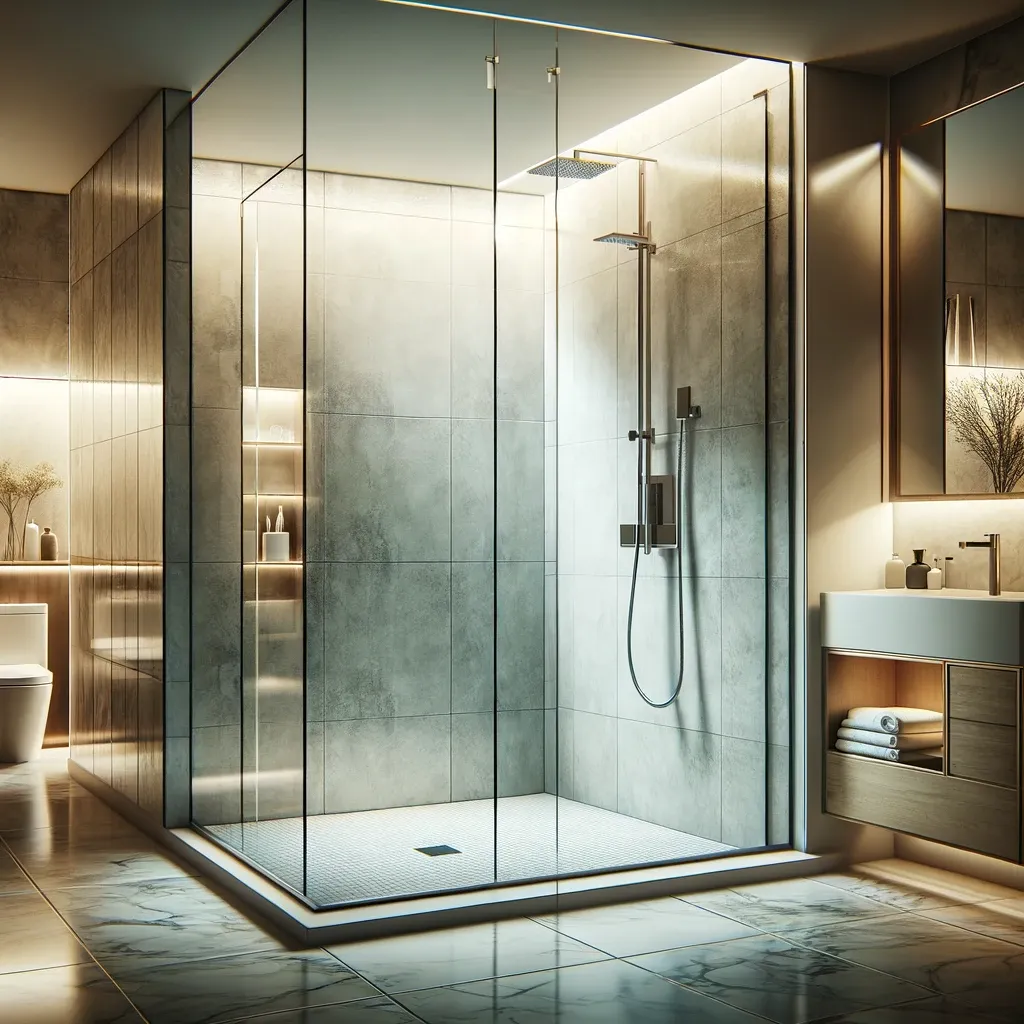
Understanding the potential disadvantages of walk-in showers can help you make an informed decision when planning your bathroom renovation. By addressing issues such as water leakage and the absence of a bathtub, you can mitigate any drawbacks and ensure that your walk-in shower meets your needs and lifestyle. With proper care and maintain
What Different Between Walk-in Tub and Walk-in Shower
| Walk-in Tubs | Walk-in Showers |
| Focus on safety and accessibility | Integration of modern design trends |
| Incorporation of hydrotherapy features | Customizable shower heads and materials |
| Options for ergonomic handrails | Sleek glass enclosures and low-profile thresholds |
About Safety:
While walk-in tubs still include a small step that can be difficult to manage for those who use walkers or wheelchairs, walk-in showers provide simple access with no barriers. Walk-in baths might be difficult to use for the elderly or others who want more assistance. Raising your feet to step over the tub’s lip can be difficult for individuals with restricted mobility, and the tub’s small size might make it challenging to maneuver.
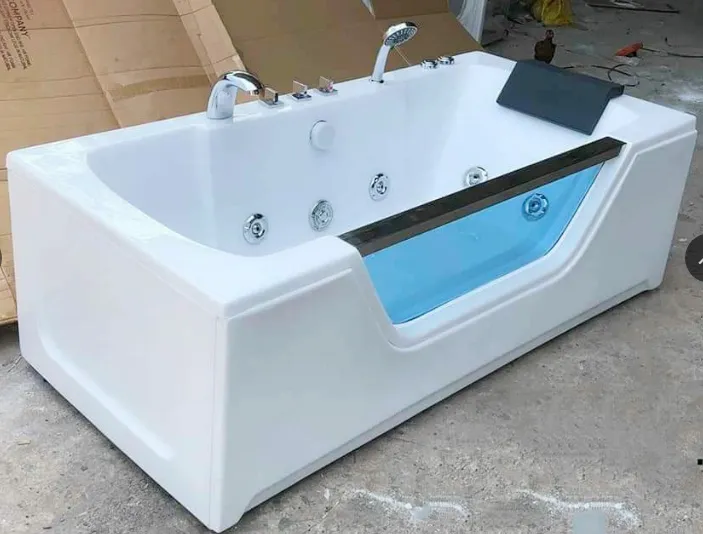
Walk-in showers, on the other hand, provide a vast room with no impediments to navigating, making it easy to move around with any type of mobility device. Walk-in showers are often preferred by wheelchair users. You must transition from your wheelchair into the walk-in tub, which can be a perilous task. When transferring, you run the risk of sliding and falling, which could result in significant harm. There is no need to transfer while using a walk-in shower; simply roll into the shower area and enjoy a pleasant and safe experience.
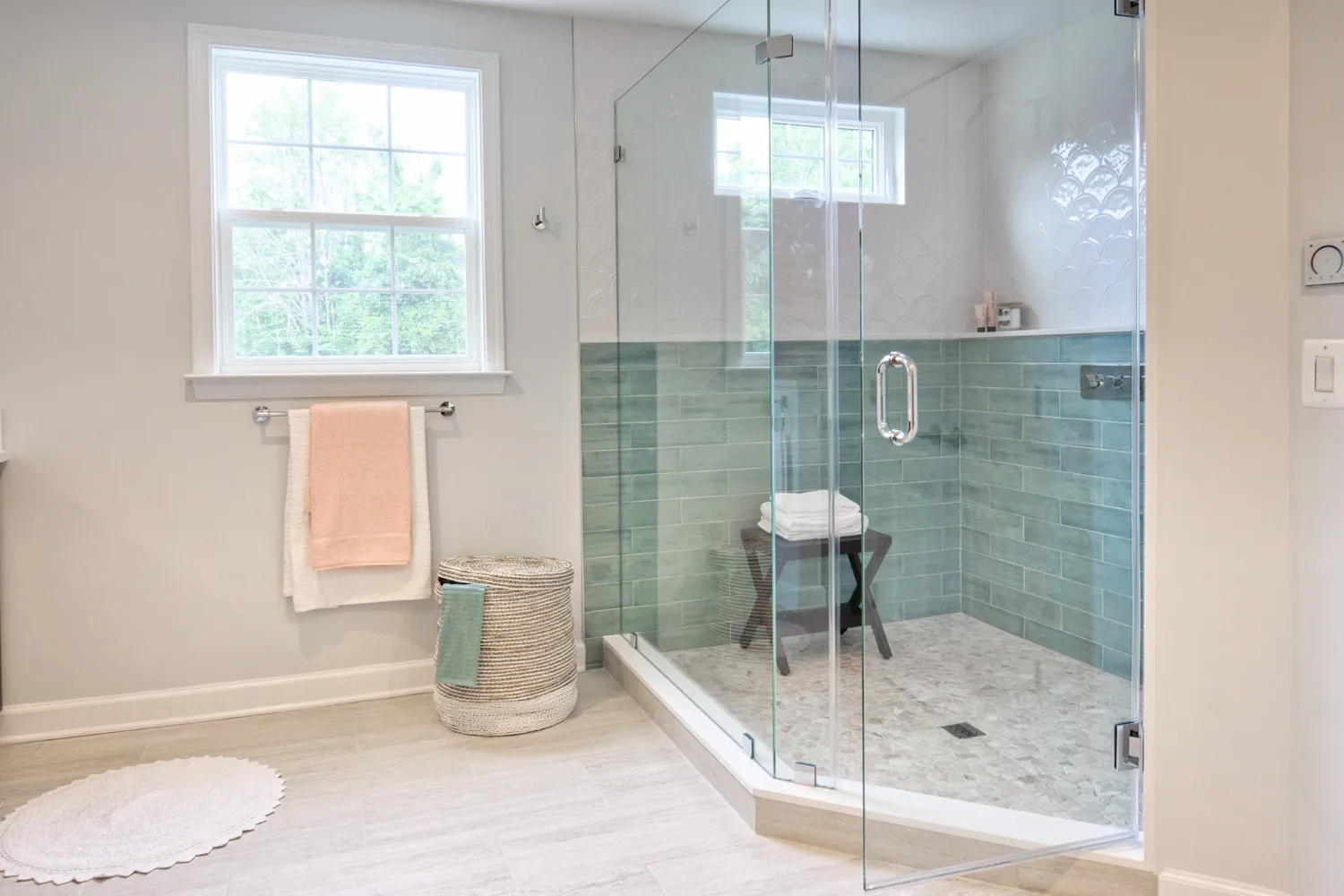
About Comfortable
A walk-in bathtub has more safety features and is easier to reach for those with mobility challenges than a standard bathtub. Sitting upright in a walk-in bathtub, on the other hand, may not be as pleasant as a standard bathtub, where you may fully immerse yourself in water and recline for a more peaceful soak.

On the other hand, a walk-in shower allows for full-body cleansing and can be especially beneficial for those with mobility issues as well. However, if you are taller or of average height, you may find that only the lower half of your body is submerged in water when using a walk-in tub. This can be disappointing if you are looking for a full-body soak to relieve aching muscles and joints.
=> Related Article: How to Converting a Half Bath to a Full Bath?
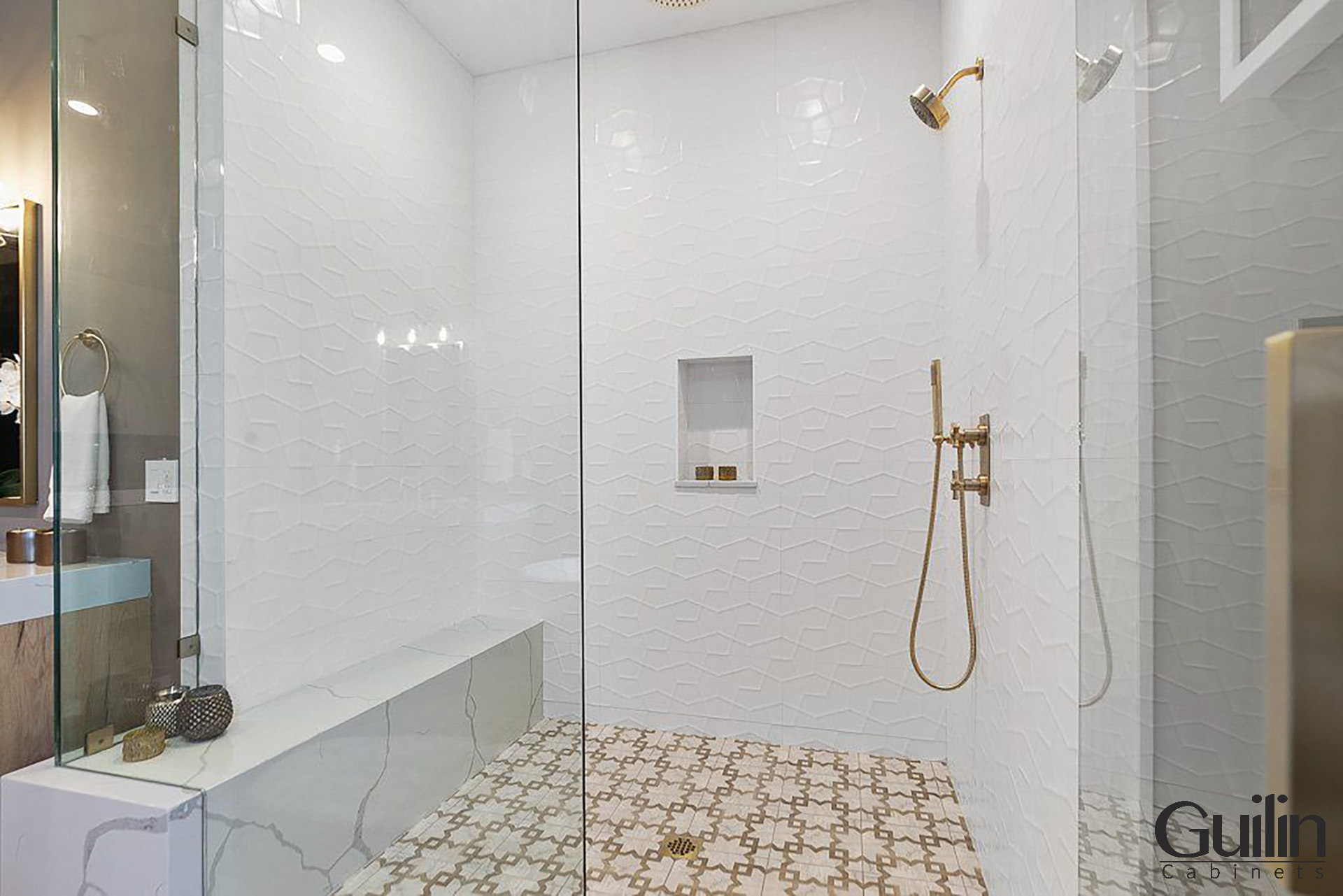
About Water Saving
A walk-in shower is a great water-saving option. You only use it when you need to. Plus, you can control the amount of water you use by simply turning the switch on and off. This way, you only use the water you need to refresh yourself. This means a walk-in shower could save you some money on water bills!
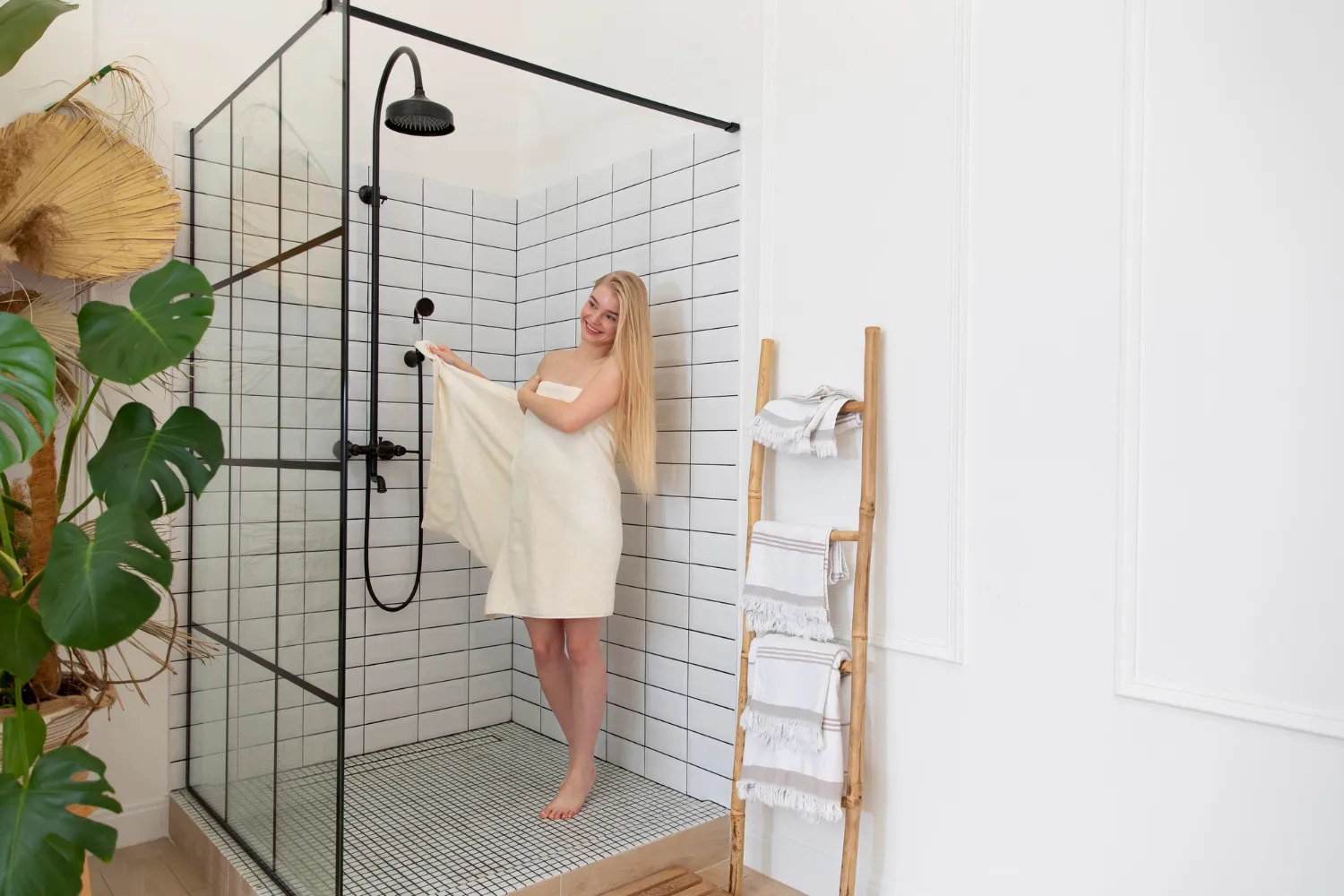
On the other hand, a walk-in bathtub tends to consume more water. Filling it up can take a lot of water! Additionally, some walk-in tubs have swing-out doors that make it easier to access them. But be warned: if you don’t latch the door properly, a flood could happen. The weight of all that water can force the door to swing open, spilling gallons of water into your home. Yikes!
Installation and Maintenance
Walk-in tubs are relatively expensive to install and maintain due to their therapeutic features that promote relaxation. They may necessitate electrical upgrades during installation, while the water heater may also need an upgrade over time. In contrast, walk-in showers are incredibly affordable to install, and maintenance costs are relatively low. Furthermore, you can easily add high-end features and other small bathroom items, giving you greater flexibility and customization options.
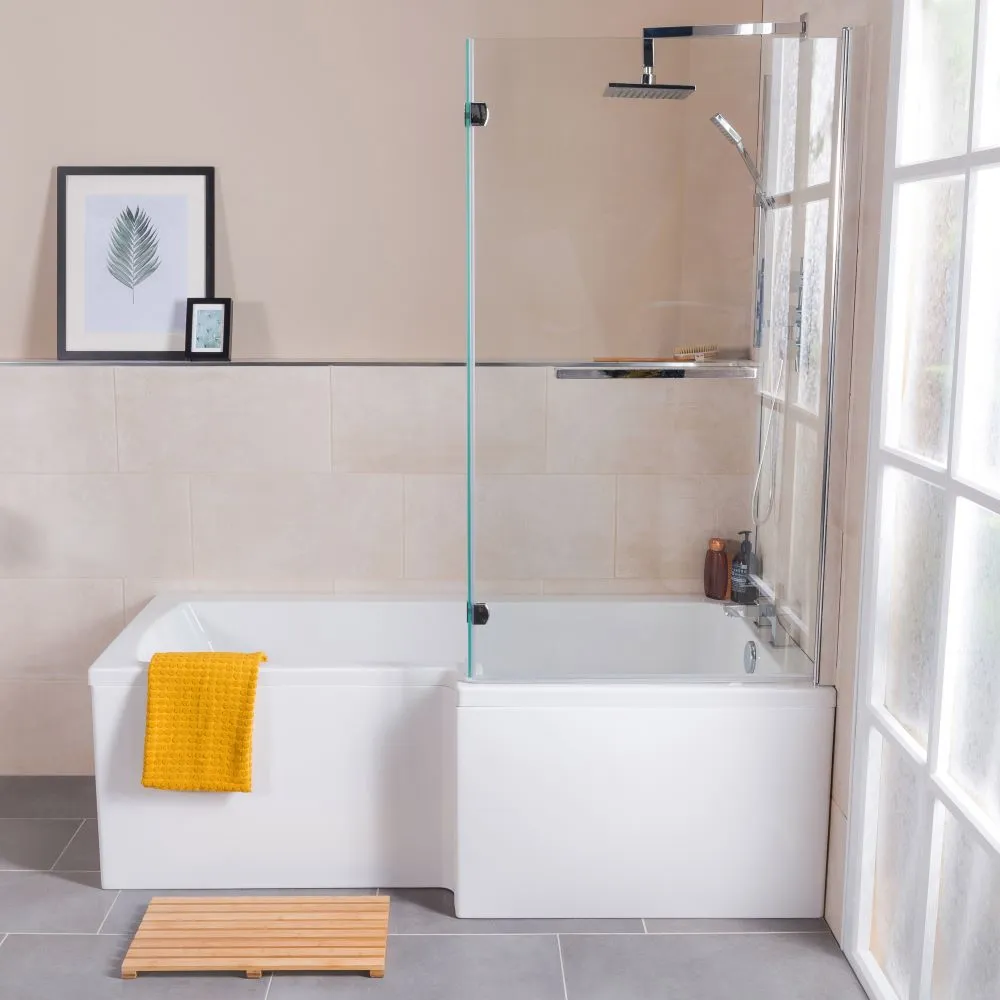
Cost Considerations
One of the thing to look at when analyzing the financial elements of constructing a walk-in tub or shower is the upfront cost. In comparison to walk-in showers, the initial investment in a walk-in tub is usually more. This is because a walk-in tub is more complicated to design and install and requires more features. In contrast, walk-in showers are often less expensive and better for the budget. They are a popular choice among homeowners seeking a more budget-friendly solution because to the reduced material and labor requirements for installation.
| Walk-in Tubs | Walk-in Showers |
| Higher initial cost | Lower initial cost |
| Additional features and complexity | Simple design and installation |
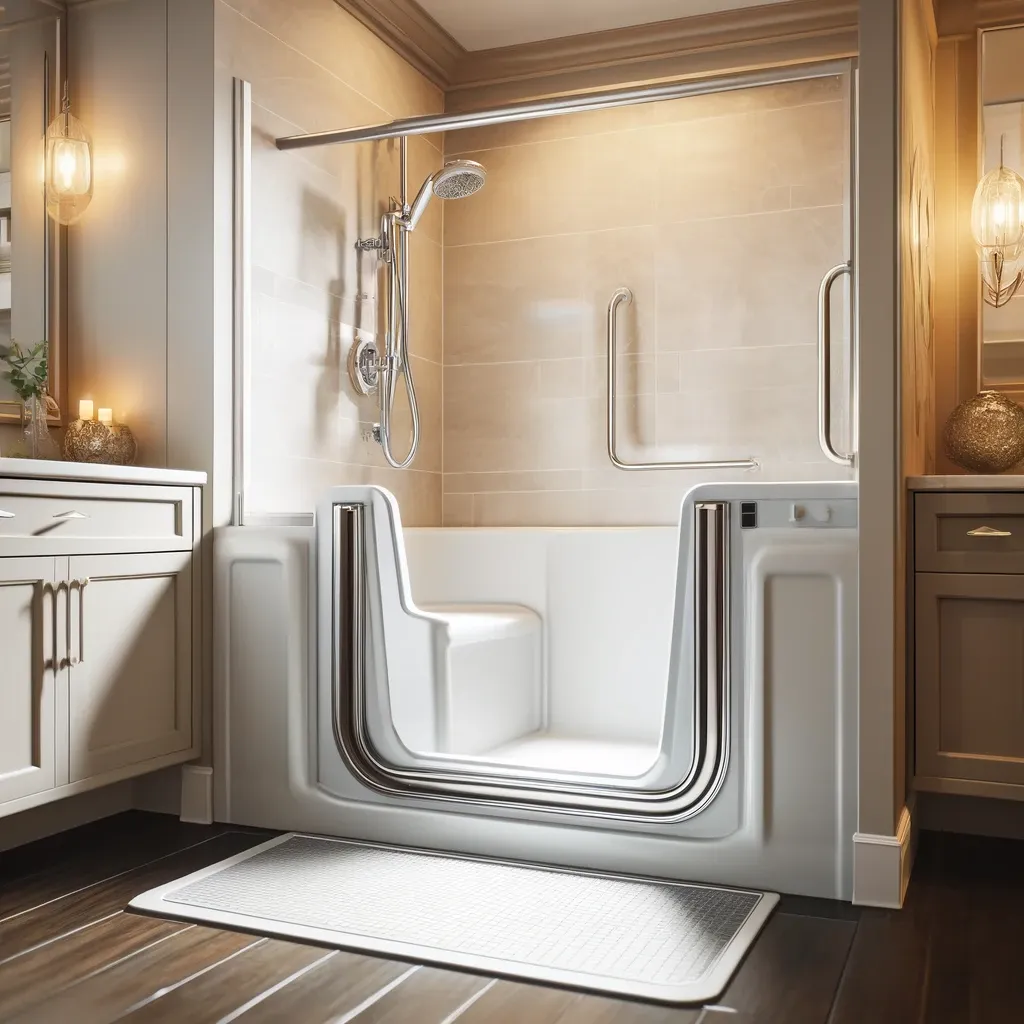
In Conclusion
A person’s personal tastes and requirements should be considered while deciding between a walk-in tub and a walk-in shower for their bathroom. Those who have trouble moving about can enjoy hydrotherapy in a walk-in tub, and those who are in need of a more contemporary and adaptable showering experience can choose between a walk-in shower and a traditional tub.
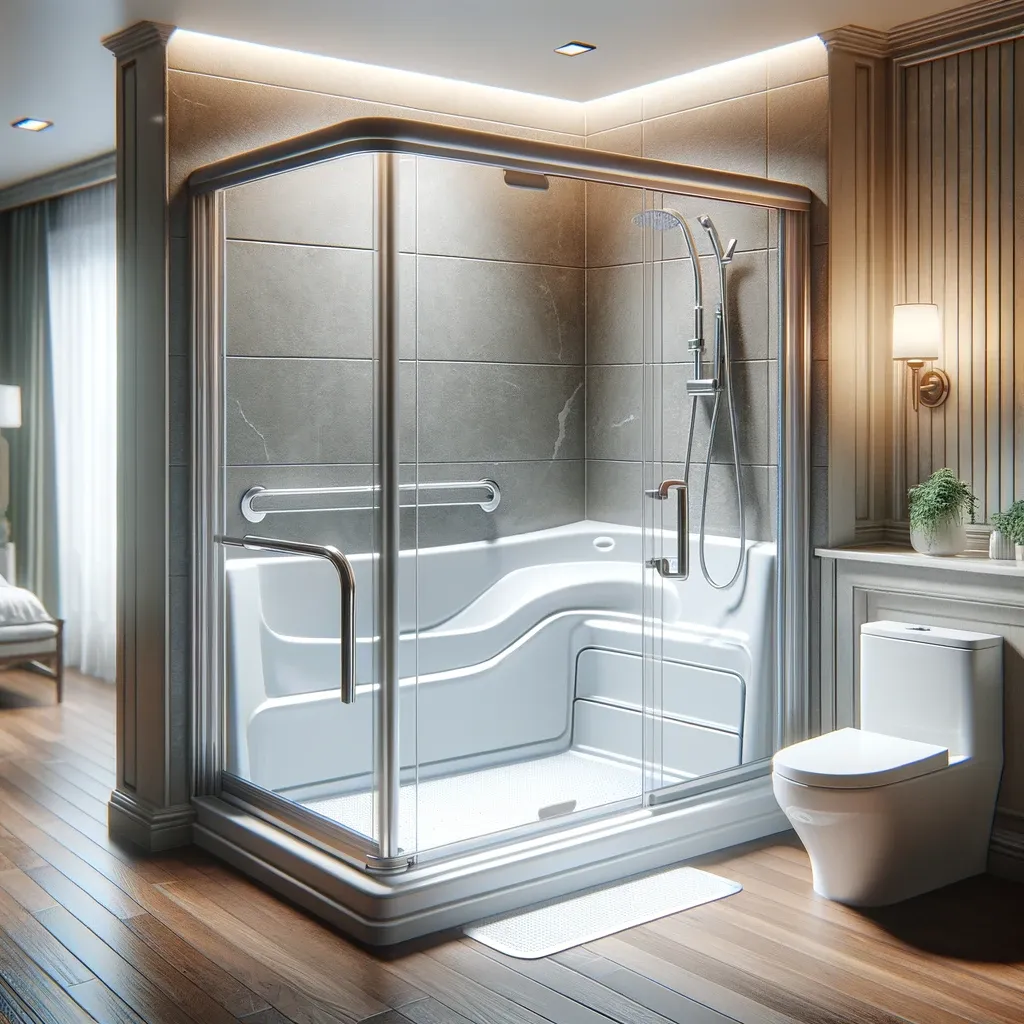
FAQs About Walk-in Tub and Walk-in Shower
What is a walk-in tub?

A walk-in tub is a bathtub equipped with a watertight door that enables users to step in rather than having to navigate over a high ledge as with a traditional bathtub. It simplifies bathing for individuals with mobility challenges by providing a safer and more accessible bathing option.
What is a walk-in shower?

A walk-in shower is a shower area designed without barriers, allowing individuals to walk in without encountering a high threshold. It offers a convenient and accessible showering experience, particularly suitable for those who find it difficult to step over traditional shower ledges.
Benefits of a walk-in tub?

Walk-in tubs are advantageous for people with mobility issues as they offer safety features such as built-in seating and handrails. They also provide a relaxing bathing experience. To highlight the safety and comfort features that make walk-in tubs a preferable choice for individuals with limited mobility.
Benefits of a walk-in shower?

Walk-in showers are favored for their ease of use, quick bathing experience, and simplified cleaning and maintenance compared to traditional tubs. To emphasize the practicality and convenience of walk-in showers, especially for those who prefer quick showers or have mobility concerns.
Which is better for my needs, a walk-in tub or a walk-in shower?

The decision between a walk-in tub and a walk-in shower ultimately comes down to your personal needs and preferences. If you have mobility issues or suffer from joint pain, a walk-in tub you need to consider. If you have a smaller bathroom or prefer a more modern look, a walk-in shower may be the way to go.
Key differences between walk-in tubs and walk-in showers

The primary distinction lies in their design and functionality. Walk-in tubs facilitate soaking and relaxation with their door entry and built-in features, while walk-in showers offer barrier-free accessibility and are more suited for quick showers. To clarify the unique benefits and purposes of each bathing option for individuals considering their bathing needs.
Suitability for individuals with mobility issues

Walk-in tubs are generally recommended for individuals with mobility challenges due to their safety features like built-in seating, handrails, and non-slip surfaces. To assist individuals in making an informed decision by highlighting the safety and accessibility benefits of walk-in tubs for those with mobility limitations.





